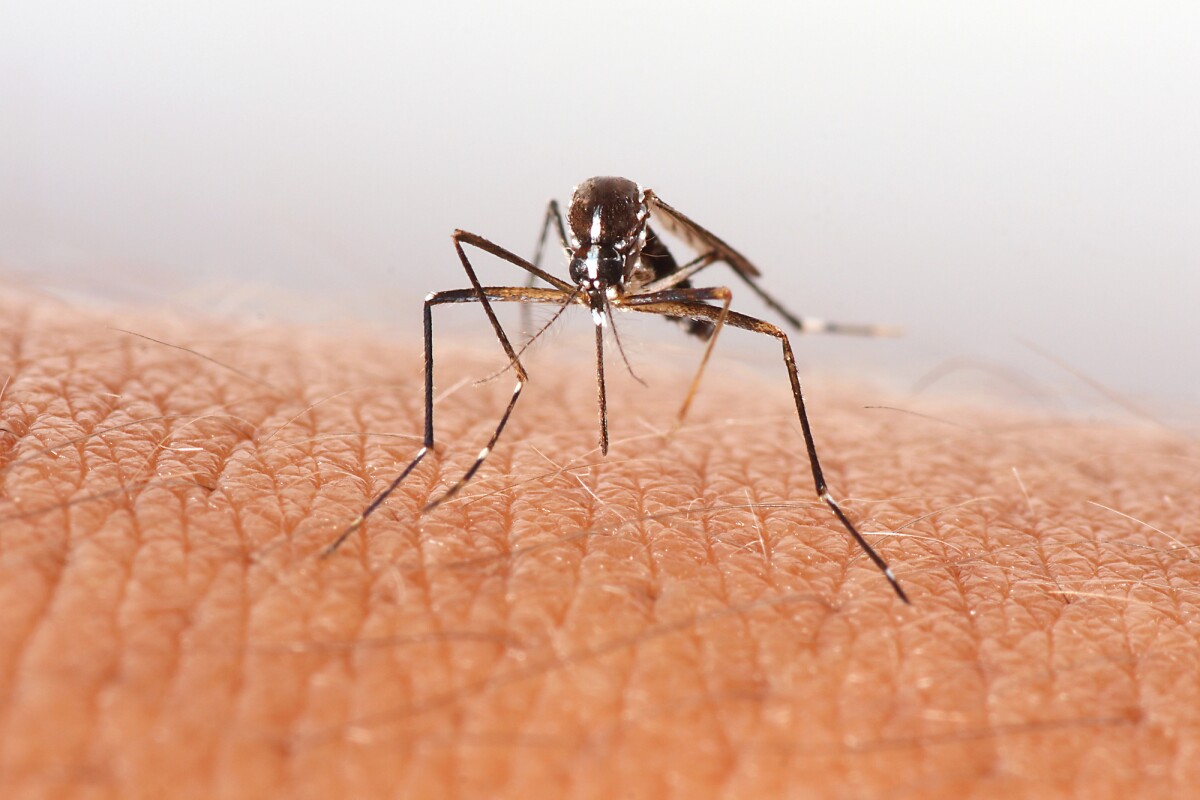
I really like this because a little surfactant added to ample water is good enough. Way more important it becomes completely possible and plausible to produce a large grid like enclosure which mists the obvious shell without dumping actual rain while also cooling the enclosure itself.
this is now ideal for an attached open air space to a home. Getting it perfect is an engineering job but should be feasible.
in many cases, a simple fence arrangement may well be good enough as they do fly close to the surface and to plants. even then it will be a great improvement. and if you are been bothered, just stand by or even into the mist.
Surfactants safely take down mosquitoes without using insecticides
By Paul McClure
July 03, 2023
Researchers have developed a surfactant spray that counters the mosquito's natural water-resistant properties, killing them without insecticides
https://newatlas.com/science/surfactants-safely-take-down-mosquitoes-without-using-insecticides/?
Researchers have developed a surfactant spray that counters the mosquito’s natural water-resisting properties, offering a safe and effective means of taking down mosquitoes without using insecticides. The spray could be used to protect people from the spread of mosquito-borne diseases.
Mosquitoes are known to be responsible for spreading potentially deadly diseases such as dengue fever, malaria, Japanese encephalitis and Zika virus, and climate change and urbanization have expanded mosquitoes’ habitat, enabling them to spread disease to more people.
Conventionally, mosquitoes have been controlled using insecticides – usually pyrethroids – but overuse can lead, and has led, to resistance. Not to mention that insecticides can cause health issues in humans. Now researchers have exploited the mosquito’s own morphology to develop a way of knocking them down without using insecticides.
Due to numerous micro- and nano-scale structures on their surface, a mosquito’s body and wings are highly water-resistant (hydrophobic), meaning that water just rolls off. In addition, their bodies are coated in a wax-like substance that also prevents them from getting wet.
In 2020, the Personal Health Care Products Research Laboratory and Material Science Research Laboratory at Kao Corporation developed technology that used silicone oil to wet mosquitoes’ legs, preventing them from landing on, and biting, humans. Now, Kao has expanded on this technology, focusing on the use of surfactants to wet the insects’ bodies and wings and alter their flight behavior.
Surfactants are molecules that have water-resisting (hydrophobic) and water-attracting (hydrophilic) parts that lower surface tension. They’re widely used in cleaning detergents and cosmetics. Knowing that previous studies had found that surfactants could wet houseflies, the researchers set about testing surfactants on mosquitoes. They used a number of surfactants that have been deemed safe for humans.
Applying water to the wings of mosquitoes had no effect as – as the researchers expected – they were able to shake it off and keep flying. However, using an aqueous surfactant solution wet the mosquitoes’ wings and caused them to fall, immobilizing them.
The researchers focused next on the body of the insect, which is covered in small openings called spiracles through which they take in air. They found that covering their body with a solution with a very low surface tension not only made them fall but also blocked the spiracles, stopping the mosquitoes from taking in oxygen and causing their death. The dead or dying mosquitoes can then be preyed on by ants or spiders.
The researchers say that their method could be used as an alternative to conventional insecticides. In addition, they say that mosquitoes are unlikely to develop resistance to the surfactant.
“In practice, we envision spraying these solutions using sprayers and sprinklers,” said the researchers. “We therefore propose that application of surfactant solutions is an effective measure in controlling mosquitoes. This method has a potential to overcome the problem of insecticide resistance and control mosquitoes potently as well as safely.”
The study was published in the journal Scientific Reports, and the below video, produced by Kao, demonstrates how the surfactant spray takes down mosquitoes.
<iframe width="800" height="450" src="https://www.youtube.com/embed/s-9T6w-Sxh4" title="花王 New technology to knock down mosquitoes without insecticides" frameborder="0" allow="accelerometer; autoplay; clipboard-write; encrypted-media; gyroscope; picture-in-picture; web-share" allowfullscreen></iframe>
New technology to knock down mosquitoes without insecticides
No comments:
Post a Comment